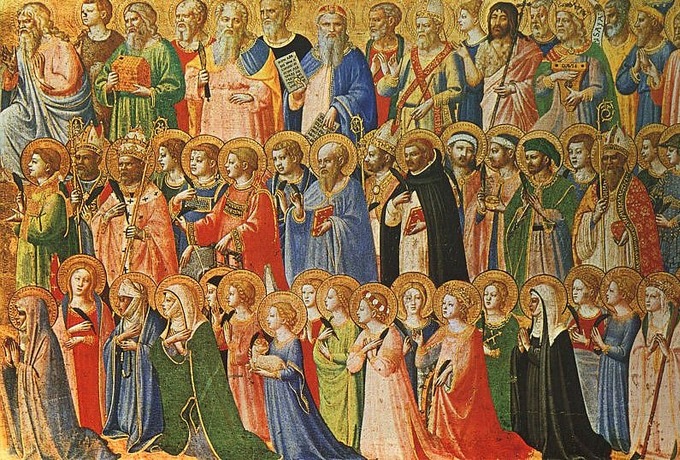Grace Notes: Love for the lost
-
 November 5, 2025by SISTER ANNE MARIE WALSH, SOLT
November 5, 2025by SISTER ANNE MARIE WALSH, SOLT
Columnist
Just a few weeks ago, on Oct. 19, Pope Leo XIV presided over a remarkable canonization. What made the canonization so extraordinary was the fact that the Italian priest, Bartolo Longo had been heavily involved in Satanism and had even served as a satanic priest.
But just as admirable as his conversion was the prayer, faithfulness and love of his family, who never gave up on him, engaging whoever they thought could help him. One professor took him on and began to meet regularly with him, reminding him that, given the direction he was headed in, he would end up in an insane asylum and finally be damned forever. Bartolo recognized his state and agreed to see a Dominican priest who worked with him and brought him back into the church.
Bartolo imposed harsh penances on himself to make up for the damage he had done, but nevertheless could not forgive himself. He struggled with despair of being truly forgiven by God. Then he came upon the words of Our Lady, “One who propagates my rosary shall be saved.”
He spent the rest of his life promoting the rosary and living out its mysteries, building a famous basilica to Our Lady of the Rosary in Pompeii, as well as founding schools, orphanages, and various other works for the poor. He also wrote books on the rosary, novenas and prayer manuals. His reflections, in fact, are the source for the Luminous Mysteries, which Pope St. John Paul II gifted to the church during his pontificate.
Two main forces animate the lives of all saints, love for God and love for neighbor, especially the lost. Jesus is seen almost always engaging with the lost because of his great love. There is nothing he is not willing to endure for them.
And the saints, whether they are great theologians like St. Thomas, or missionaries like St. Francis Xavier, or mystics/contemplatives like the great St. Theresas, are exactly like this as well. Their love for the lost and their desire for the salvation of every soul move them to great heights of holiness, to profound union with Christ in his redemptive work.
Even heaven seems oriented to the lost. The Scriptures tell us that we’re surrounded by heavenly witnesses who, by implication, cheer us on, root for us, encourage us and inspire us. And we know that all of heaven rejoices over the one soul that returns versus the 99 that did not need to be saved.
One of the witnesses our present day needs is the presence of this kind of love, a genuine love for the lost, no matter the depths of darkness they may be in. We have all been saved and should be willing to do whatever it takes to bring others into that same light. But today, the divisiveness and judgment of the pharisees seem to prevail in us.
Perhaps one of the reasons Jesus tells us not to judge one another, in fact to even love our enemies, is because it’s very hard to love someone you’ve already judged. And love, not judgment, is our real mandate. We ourselves will be judged on how we love. We’re not going to be judged on the brilliance of our insight into other people or our profound assessments of their motivations and intentions.
We are hardly in a position to be impartial about anything, given the strength of our own ego and our bias towards the negative and given that we are so poor at seeing the goodness of the father at work. We can hardly claim to be faithful followers of Christ if we do not comport ourselves as he did, nor carry the sentiments of his heart toward all.
That is a challenge in a culture like ours, which constantly seeks to polarize people and keep them at odds with each other. Yet, for the believer, unless we recalibrate our own hearts to the love Jesus bears not just for us, but for all, we will not fulfill our real purpose in extending Christ’s saving love to all, nor bear fruit that will count for anything when our lives are weighed before the Lord.
What is the driving force of your life? What is the animating spirit? Because if the major animating force of Jesus’ life, aside from his love for the father, is love for the lost, then it should be ours also.
“What really matters in life is that we are loved by Christ and that we love him in return. In comparison to the love of Jesus, everything else is secondary. And, without the love of Jesus, everything is useless.” - St. John Paul II
That understanding is a light that people of today are literally dying to see.
HOME
